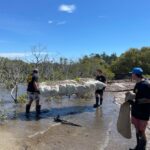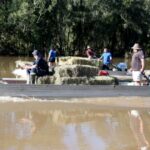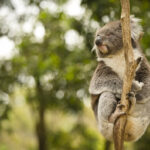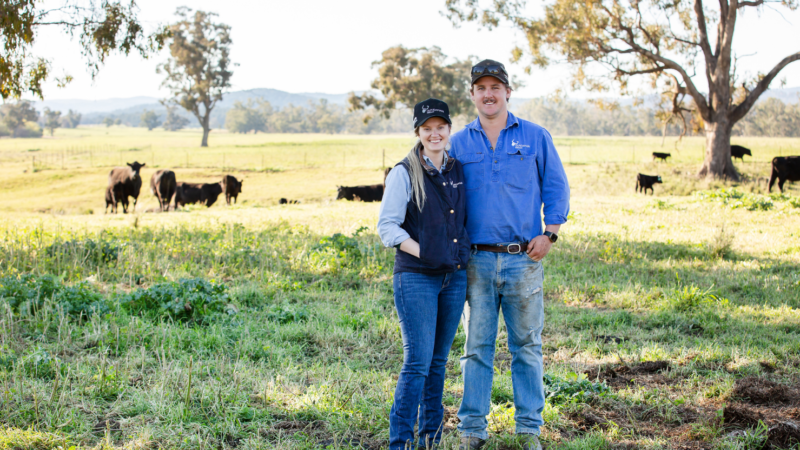Oyster farmers teamed up with Kempsey Shire Council to clean up near South West Rocks…
The Oyster Farmers Daughter
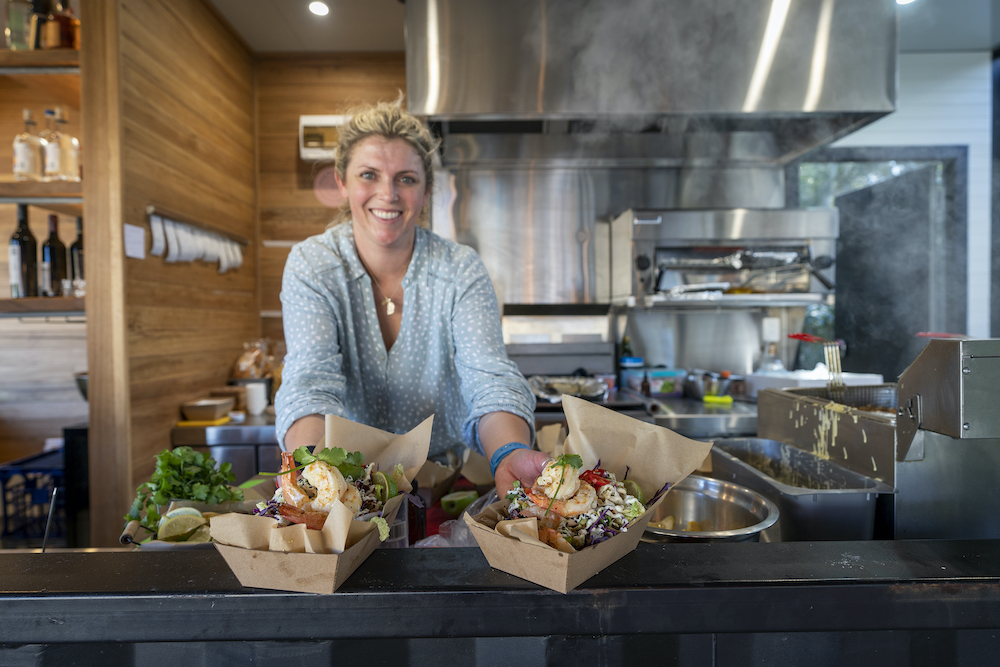
Three kilometres from Narooma Bridge is an oyster farm owned by Brian and Heather Coxon. It’s an idyllic setting – a beautiful little cove with the famous, pristine sapphire river on one side and bush on the other. Pelicans, seals and eagles are regular visitors.
In the late eighties, former Navy chef, Brian thought about opening an oyster bar here but a huge algae bloom hit, almost destroying the oyster industry and his business. In December 2020, however, his daughter Natasha Clutterbuck decided to give the project a go herself.
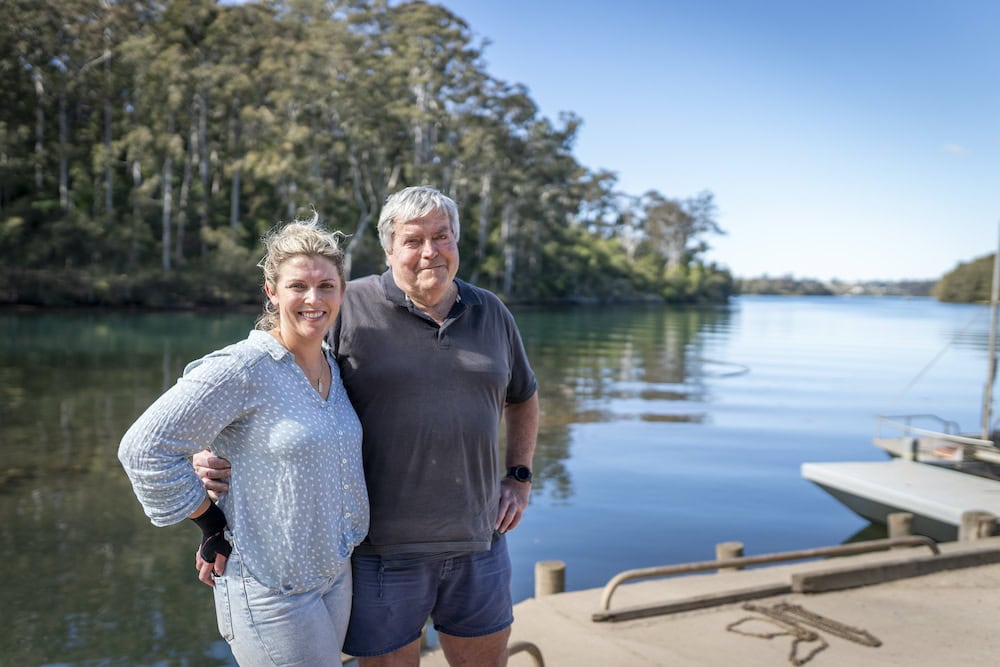
Timing wasn’t great as the region was still recovering from bushfires and navigating the Covid pandemic, but she and husband Laurie decided to start modestly, not taking on any loans and only investing what they could afford to walk away from.
“When we opened, I had one umbrella, two tables and six chairs. Within days, I told Mum: ‘I think we need to hire some stuff’.”
Natasha Clutterbuck.
Her client base has been growing ever since with up to 500 visitors a day streaming through the gate in summer to dine and drink at her Oyster Farmer’s Daughter bar.
She’s never advertised and it’s not a place for a bargain feed, but customers know it’s the place to come for the freshest oysters possible – whether served natural with a squeeze of lemon or a selection of dressings.
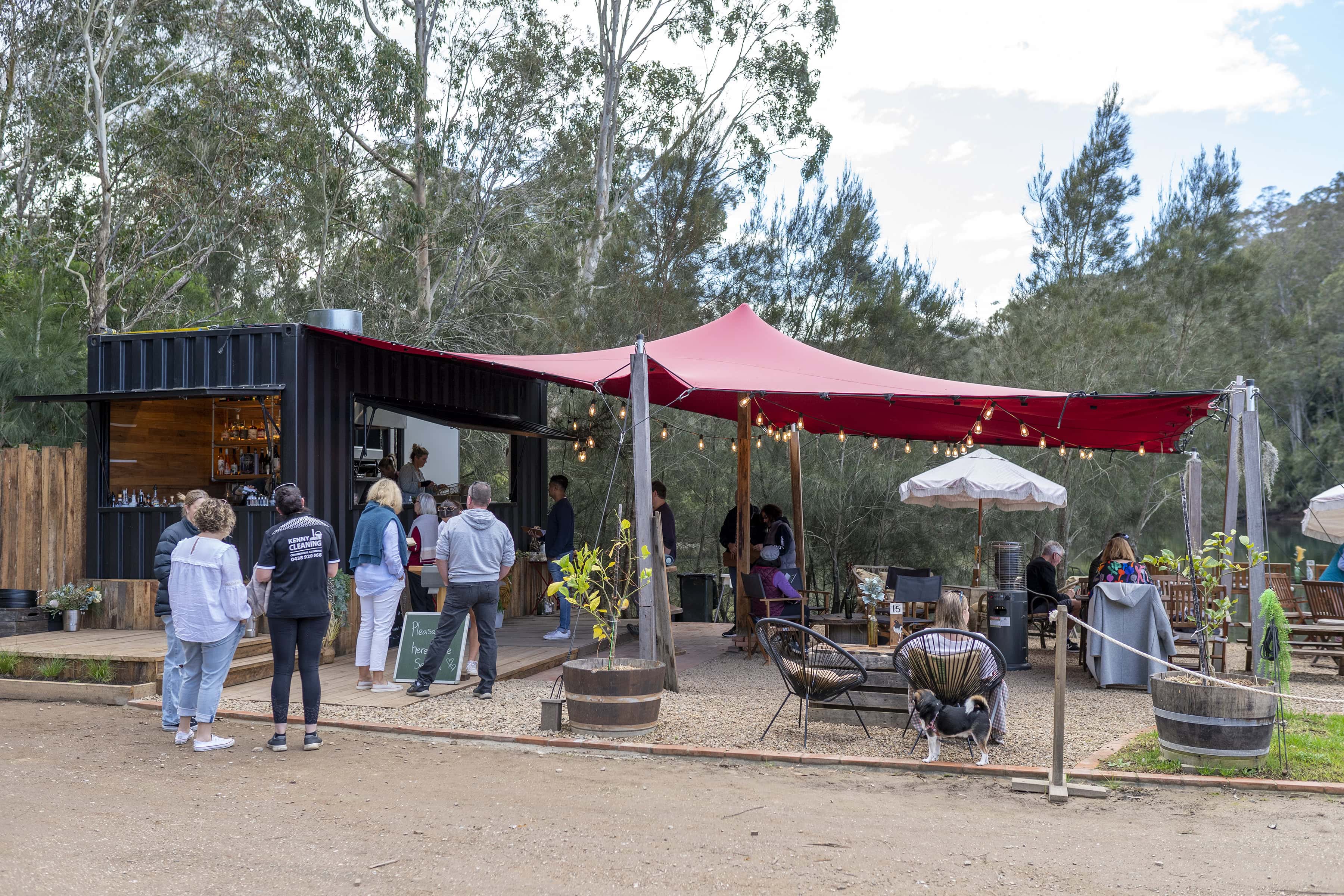
“You can watch the boys come in from the river, unload the trays of oysters and clean and open them. You know those oysters have been bred, cared for and brought in from that river only that day,” Natasha says.
Many farmers aspire to cut out the middleman when selling their produce. It not only ensures maximum profit and control but allows them to better sell a provenance and a brand.
There was a time when third-generation oyster farmer, Brian, employed 15 staff and trucked semi-trailer loads of oysters off to Melbourne and Sydney restaurants.
Now, 90 per cent of his oysters go to Natasha, a timely arrangement that has worked well as Brian has scaled back in retirement and Covid lockdowns closed many restaurants.
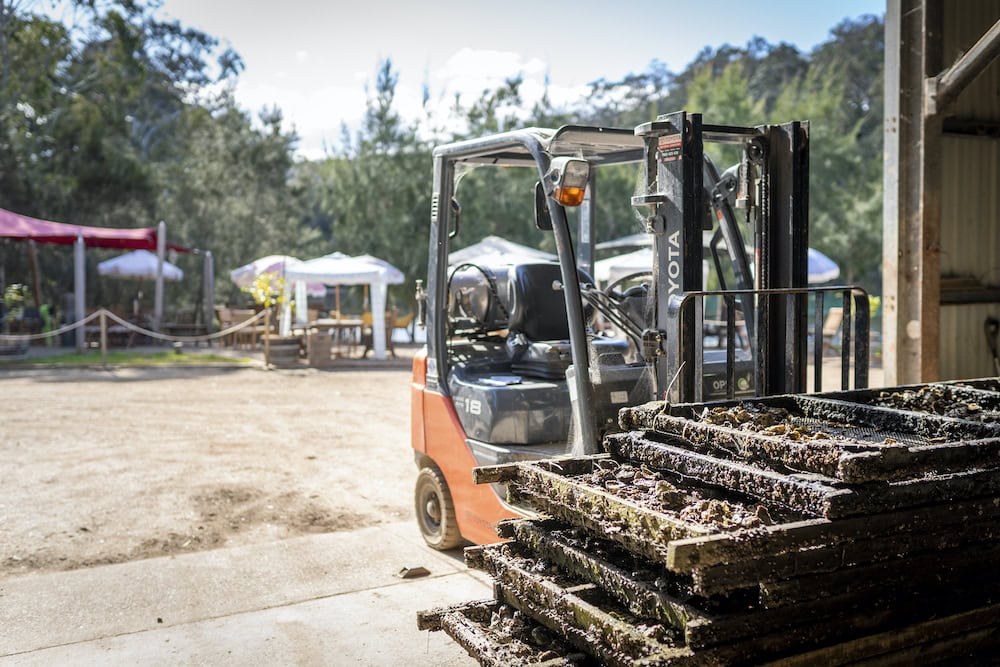
Although Natasha’s brother, Steven, is also an oyster farmer, Natasha and her sister Melissa were never encouraged to get involved. “Dad was pretty protective of his girls,” she says.
Instead, they focussed on horse-racing, and Natasha based herself in Sydney to become a professional showjumper with a talent for transforming ex racehorses and naughty Warmbloods.
However, after a stint working in a dental surgery she decided she needed a long-term plan. Since opening, the oyster bar has been receiving rave reviews for her food which, besides oysters, includes flathead, prawns, Moreton Bay Bugs, scallops, salads and cheese platters.
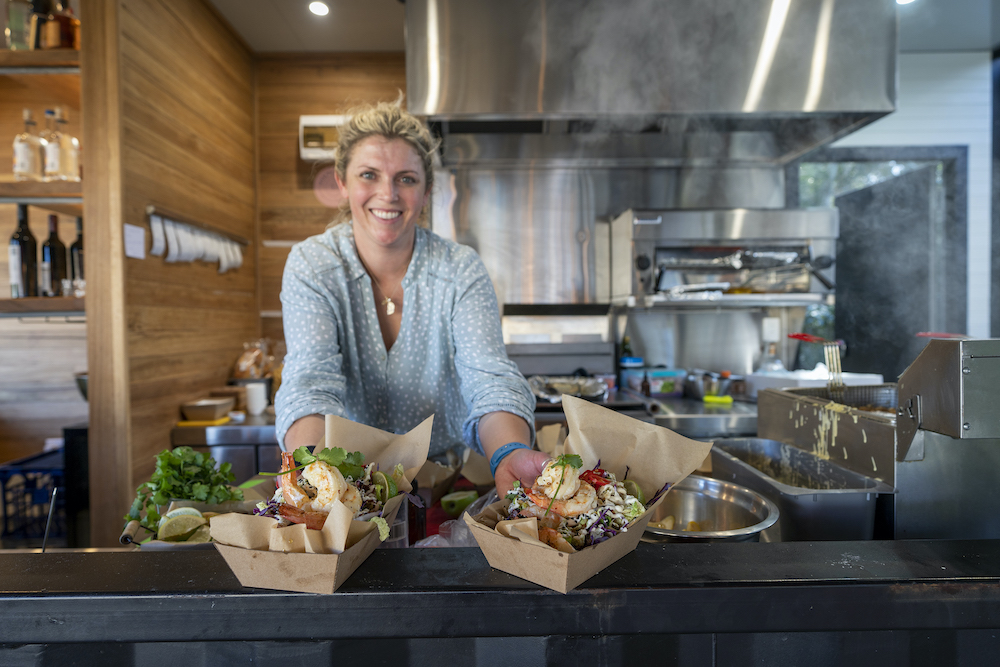
Both she and husband Laurie were raised in Narooma and decided to return when they started their family – Beau, now seven, and Ivy, three. Even so, opening an oyster bar wasn’t the obvious career choice as Natasha has no culinary background and laughs that her husband reckons she’s the worst cook ever.
Visitors come for a cocktail and a few oysters and once the local band strikes up, they just keep ordering more.
Behind the scenes at the Oyster Farmers Daughter Oyster Bar.
The secret to her success, says Natasha, is her dad. He doesn’t interfere but, being “super fussy” about what he eats, tells her if something’s not right.
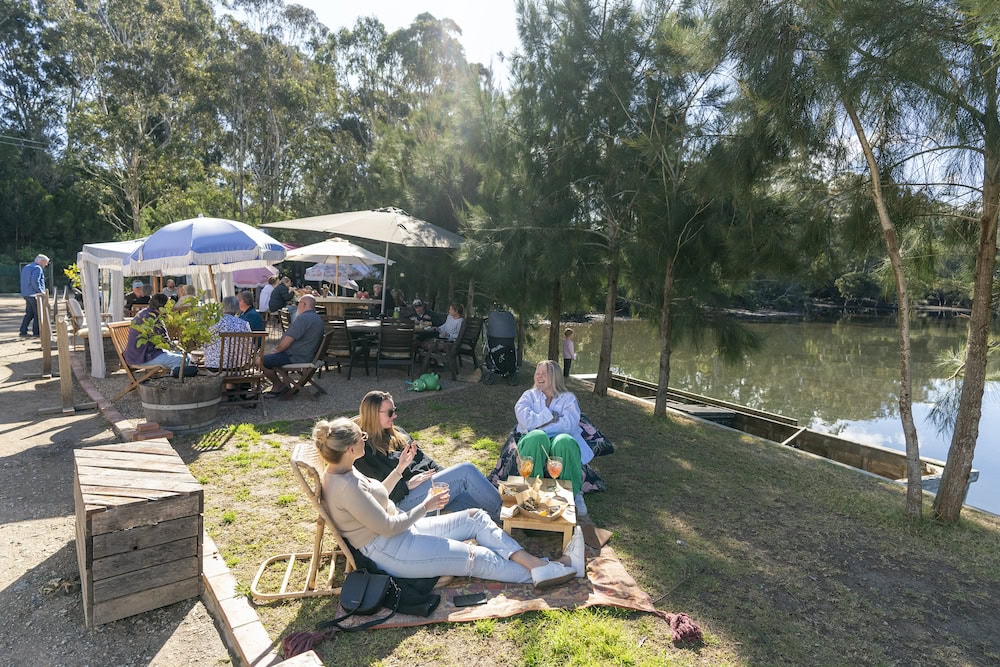
“He taught me how to source great quality seafood and how to prepare it.”
“I take the attitude that, with seafood, the less you do to it the better. It’s all about enhancing the flavour. It doesn’t need to be covered in sauce.”
Natasha Clutterbuck.
A third-generation oyster farmer, with a farm in the Eurobadalla for nearly 40 years, Brian has always been passionate about sustainable fishing in every form.
“Dad is all about the ocean’s longevity, the cleanliness of rivers, and how we treat everything we eat,” says Natasha. “We can’t just think about our lifetime. We have to think long-term so everything we use is as local as it can possibly be.

“Everything I serve is fresh and of the highest quality. Some people do balk at our prices but our mark-up is not huge when you look at how much I pay for produce.
“We want to serve nice, unique things whether it’s seafood, alcohol, coffee, fresh juices or seasoning. Just because we’re working out of a three-metre trailer doesn’t mean the food can’t be the highest standard possible.”
One example of the unique local produce Natasha uses is a Mystery Bay Kelp seasoning, made by a local from seaweed, dried garlic and different seasonings from around the area.
“That’s an expensive product. I put it on our fish and chips and I could choose not to serve it, but I like supporting and promoting local producers and it’s beautiful and provides a point of difference.”
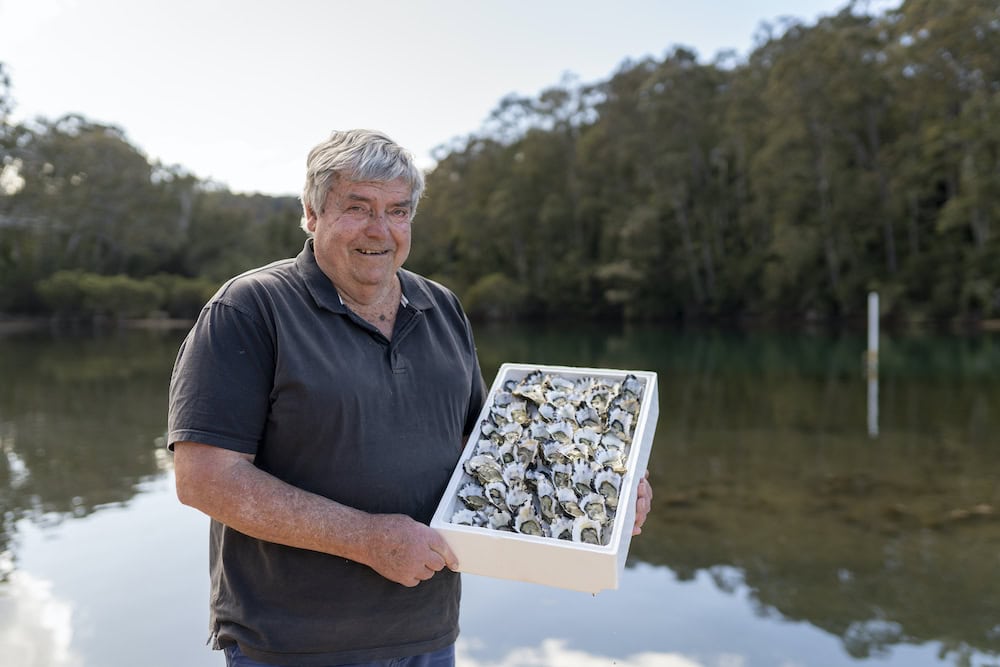
Other locals who win a place on Natasha’s menu include Guerilla coffee roasters from Moruya, Rusty Fig wines from Bermagui and Tilba cheeses and jams. The beer, gin, fruit and salads all come from nearby distilleries or suppliers.
In a foodie culture where customers like to know the provenance of what’s on their plate, Natasha loves showcasing these small operators and their stories. They in turn show their appreciation at being showcased through gestures such as free freight.
Natasha is delighted by the success of her business although everything she makes is ploughed back into improvements with the next arrival a bigger trailer with larger fridges.
“We’ve got a lot more growing to do but we don’t want to change too much,” says Natasha. “People like the fact it’s a humble, realistic, working farm and I want to keep that while making the experience as nice as possible.”
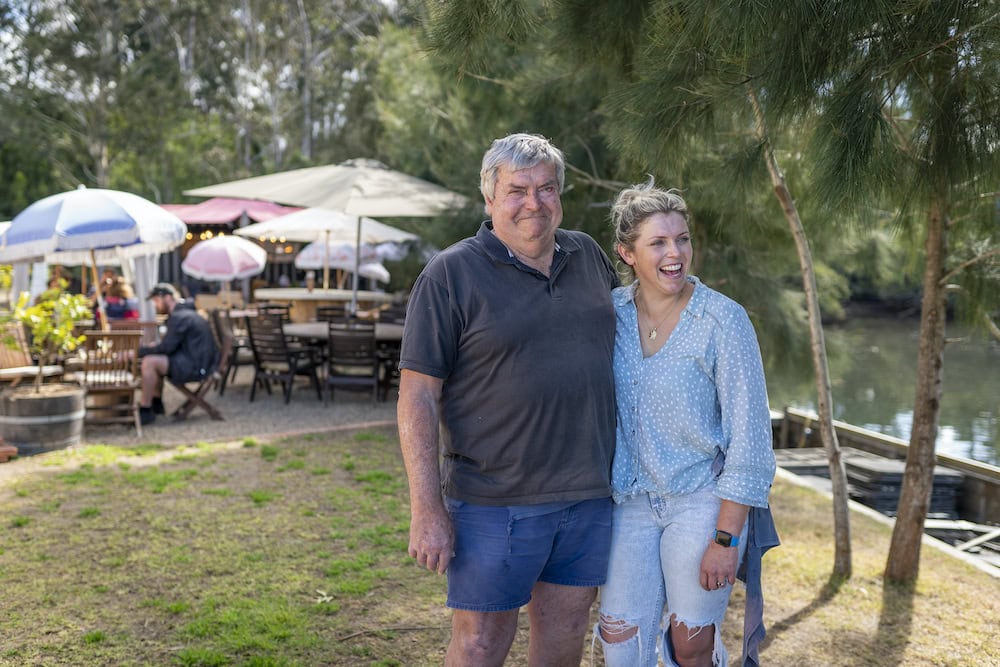
Does she feel her dad missed an opportunity not opening the oyster bar himself? “It was a shame. Dad was before his time with his vision,” she says. “But I guess we didn’t have the foodie culture then that we have now.
If you enjoyed this feature on the Oyster Farmer’s Daughter, you might like our business story on mobile butcher businesses.


